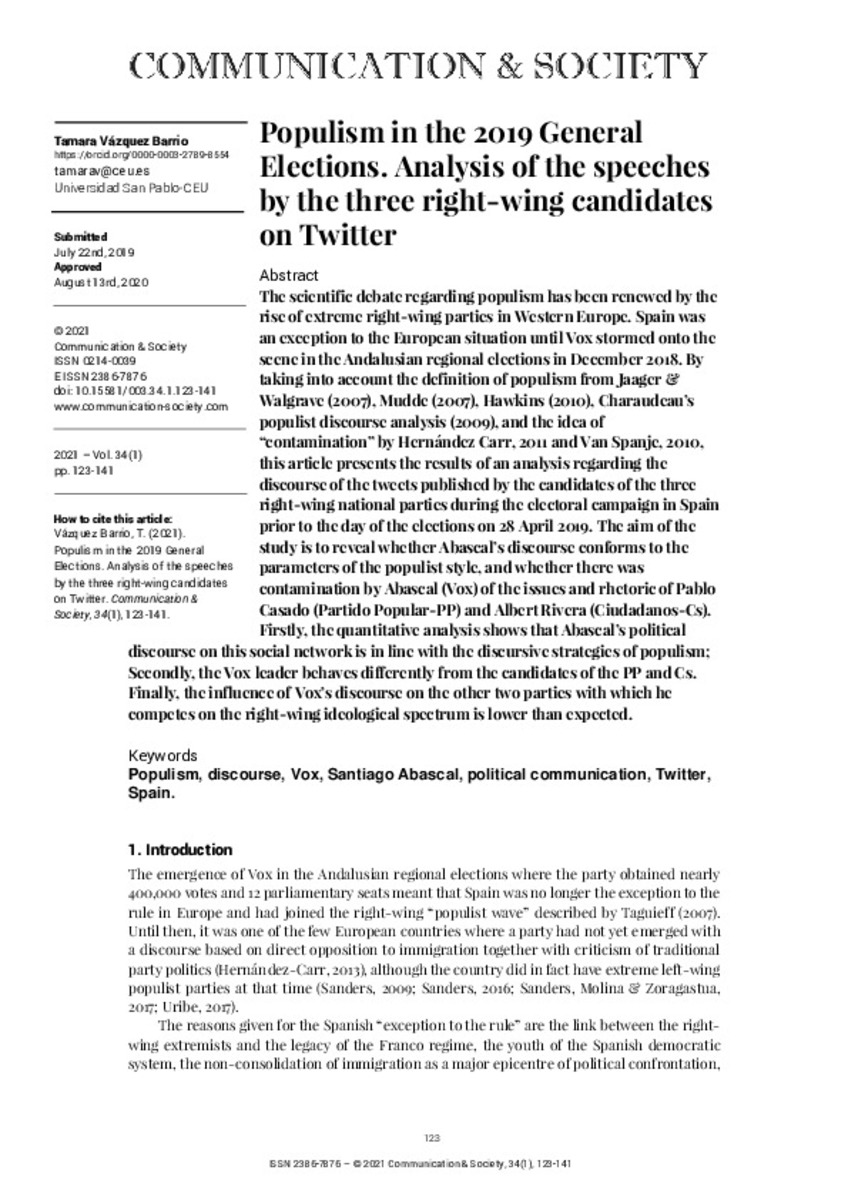Populism in the 2019 General Elections. Analysis of the speeches by the three right-wing candidates on Twitter
Files in This Item:
Statistics and impact
Items in Dadun are protected by copyright, with all rights reserved, unless otherwise indicated.







